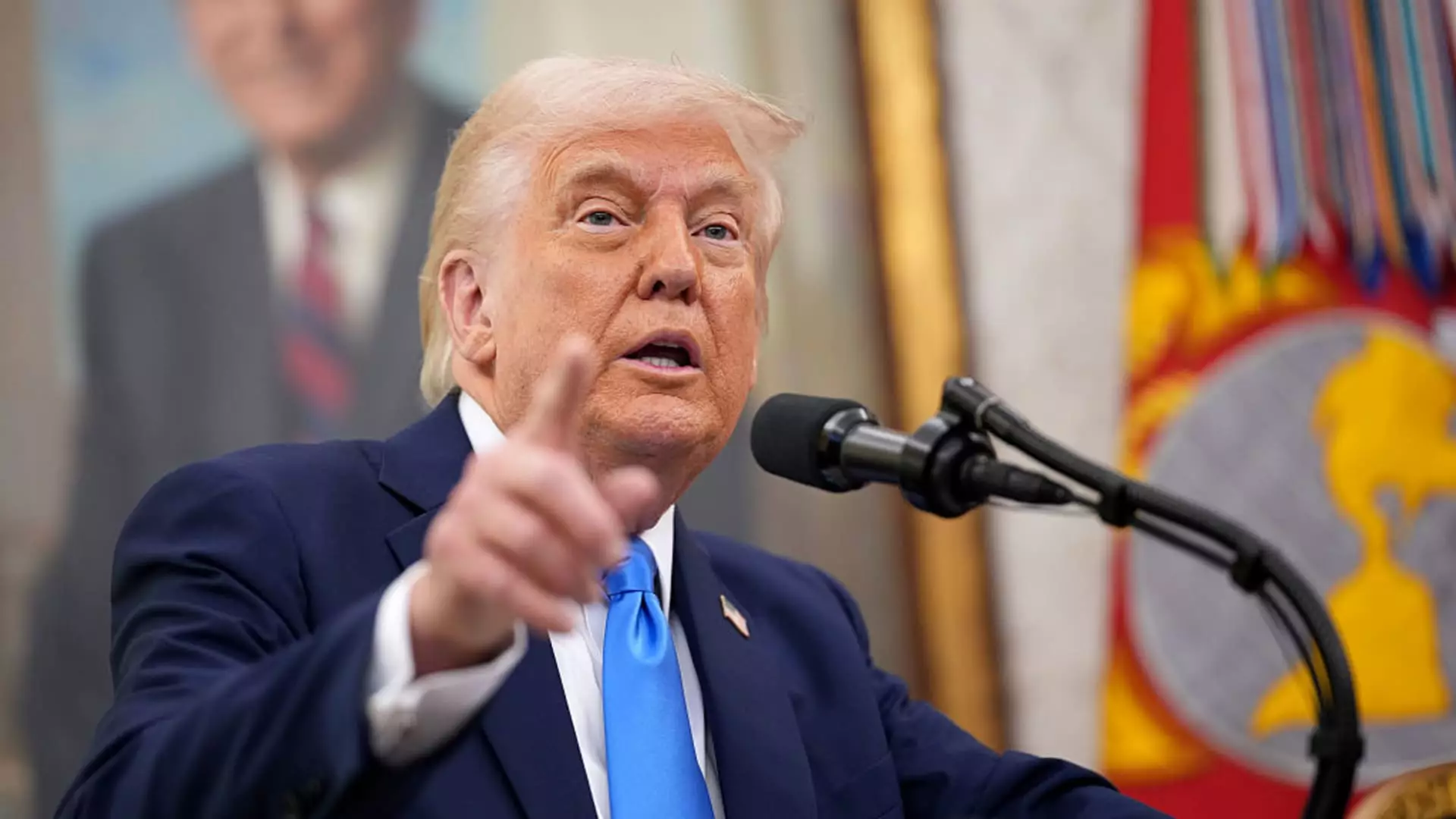As President Donald Trump gears up to unveil a potentially unprecedented batch of tariffs, the economic landscape hangs in the balance. With promises of a “liberation day” for American trade, his rhetoric paints an optimistic picture, but beneath the surface lies a swirling vortex of uncertainty. Key details, such as which countries will bear the brunt of these tariffs and how rates will be calculated, are ambiguous at best. This air of mystery invites skepticism about the efficacy and the true objectives of this strategy. Rather than fostering cooperation, such unpredictability breeds tension among global partners—an outcome far from the promised liberation.
The Misguided Pursuit of Trade Equity
Trump frames these tariffs as necessary asymmetry correction against nations he claims are taking advantage of the United States. However, this viewpoint simplifies the complexities of global trade, where deficits can signify a robust domestic demand rather than a weakness. The assertion that America is being “taken advantage of” overlooks the intricacies that come into play. Economists highlight that trade deficits can function as a reflection of consumer preferences, allowing American citizens access to a diverse array of goods. By focusing narrowly on tariff protectionism, the administration risks stifling the very economic dynamism it aims to protect.
Targeting the ‘Dirty 15’: Who are the Victims?
Treasury Secretary Scott Bessent introduced the dubious concept of the “Dirty 15,” a phrase that soundbites well but lacks substantive clarity. Highlighting countries that supposedly embody unfair economic practices, it provides a surface-level scapegoat while offering no real solutions. The ambiguity surrounding the specific nations included in this list only intensifies apprehensions among allies and trade partners. Such labeling without comprehensive naming serves only to fog the issues, rather than addressing them with clarity and expertise. This vague terminology feeds into a narrative of blame, rather than encouraging dialogue and deepening mutual understanding.
Cognitive Dissonance on Economic Relationships
While some administration officials, like Kevin Hassett, speak of targeting an economically significant contingent of nations contributing to a trillion-dollar trade deficit, the discussions devolve into rhetoric rather than actionable plans. Trump’s contradictory statements—suggesting that tariffs will affect all countries rather than a select few—reflect a chaotic and reactionary approach to economic relations. This contradictory mindset only serves to underscore the administration’s challenge in articulating a coherent trade strategy. How can the U.S. position itself as a leader in global economic governance when it frequently shifts its goals and terms?
Counterproductive Tariffs on a Flawed Premise
As these tariffs on foreign goods loom, one cannot ignore the convoluted path that has led to such measures. Previous announcements—like those on steel, aluminum, and car imports—barely scratch the surface of a deeper issue: a comprehensive trade policy that truly benefits American interests. The reality remains that blanket tariffs hamper economic growth and inflate prices for consumers, which invariably contradicts the administration’s narrative of championing American jobs and industry. Observers must question if these measures stem from an informed understanding of economic interdependencies or if we are witnessing a self-destructive posturing on a global stage.
Call for a Balanced Approach
Center-wing liberalism posits a careful balance between protecting national interests and embracing global interconnectivity. While concerns about trade equity are valid, the reckless application of tariffs, steeped in confusion and driven by political motivations, can negate genuine progress. Instead, the United States should strive for constructive engagement, re-evaluating its trade relations with a robust economic strategy that emphasizes cooperative framework policies rather than punitive tariffs. Power dynamics constantly evolve within geopolitical landscapes, and through informed dialogue and mutual respect, the U.S. can embody the kind of leadership that truly fosters economic resilience, both domestically and globally.


Leave a Reply